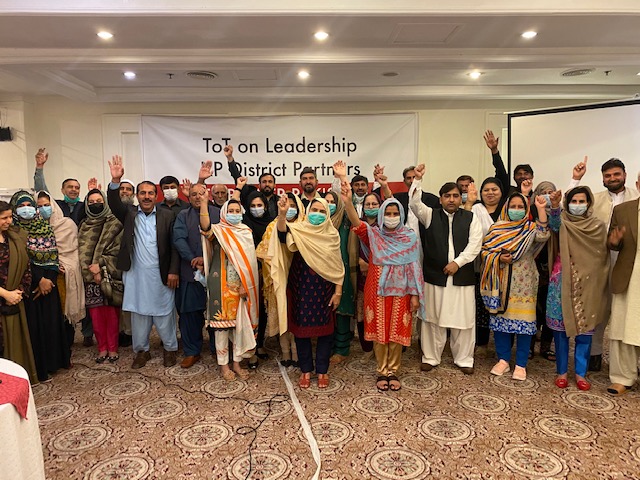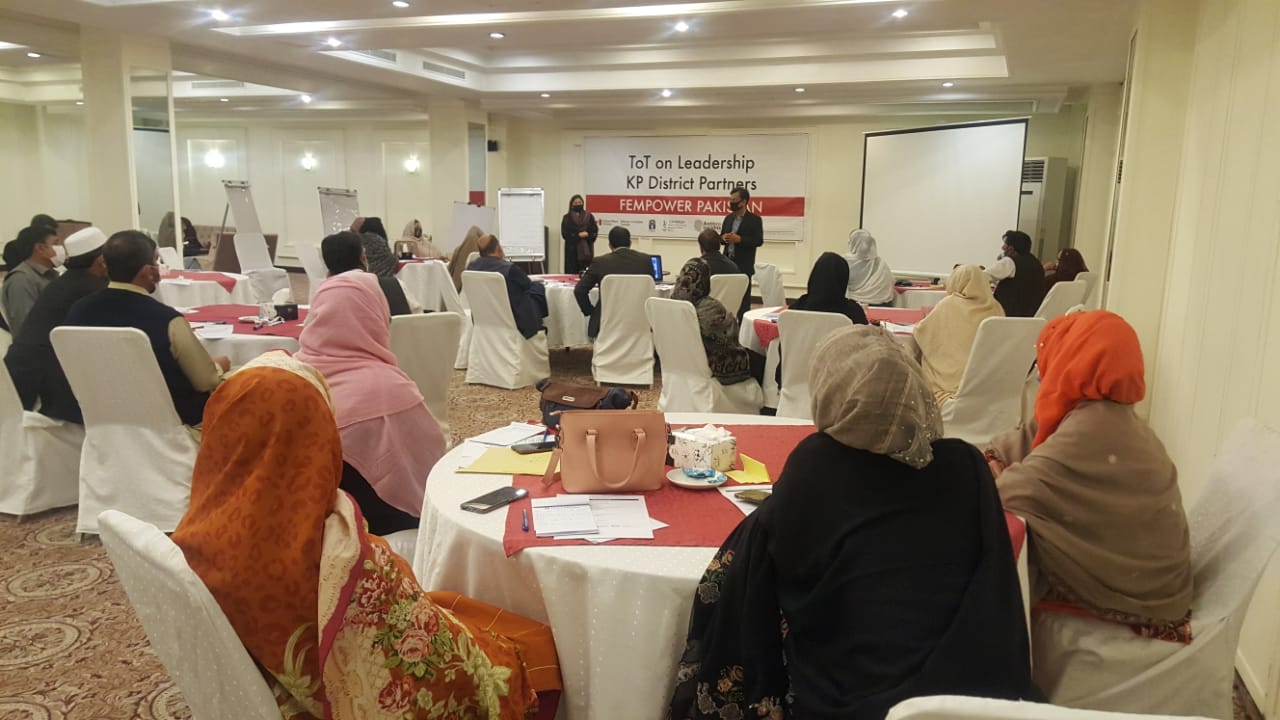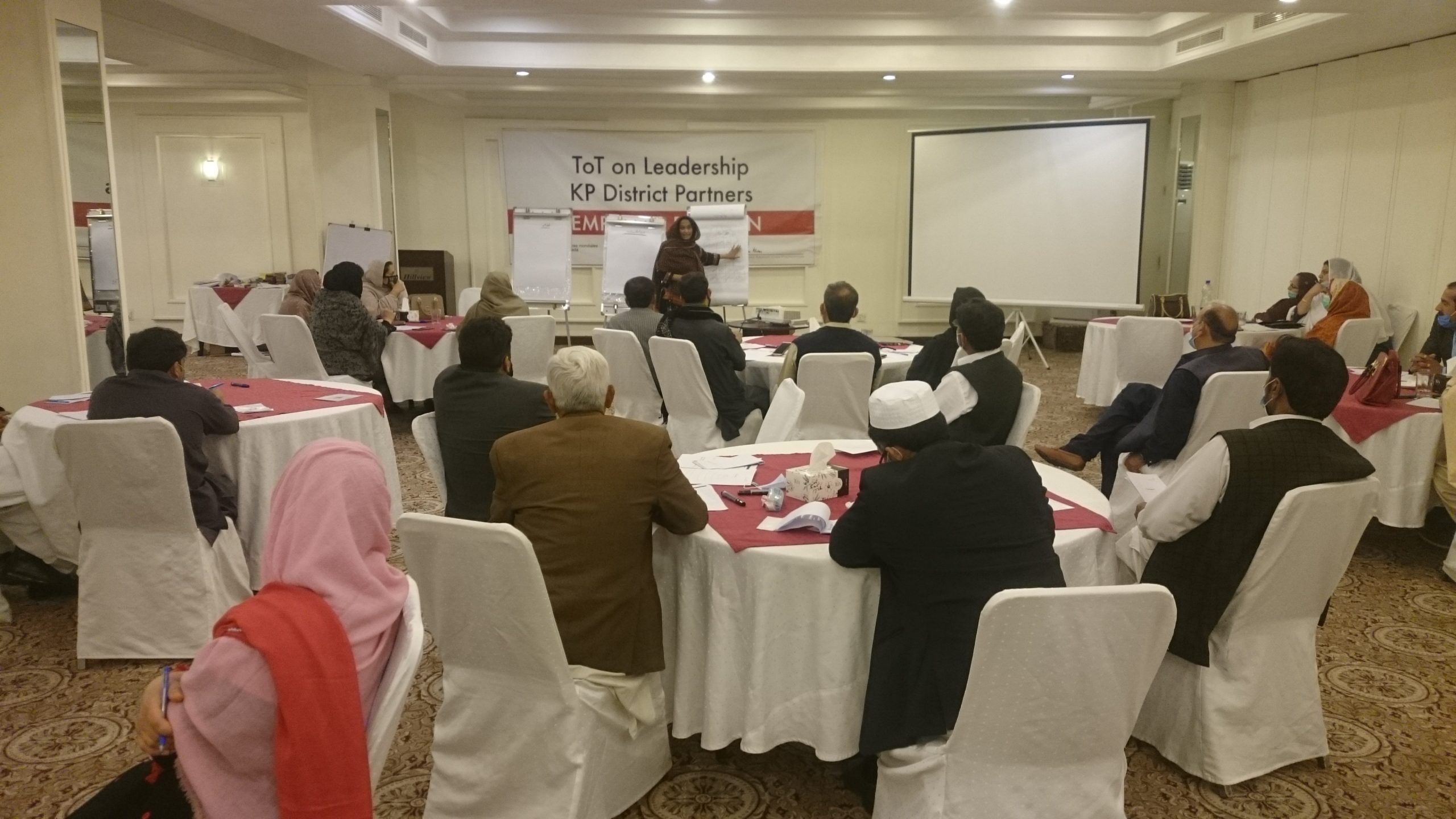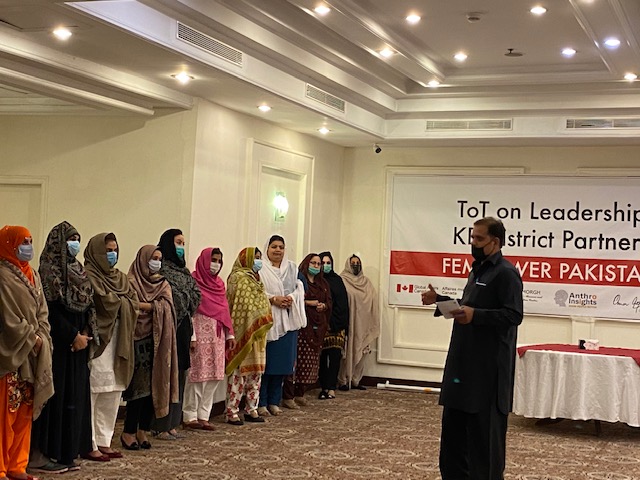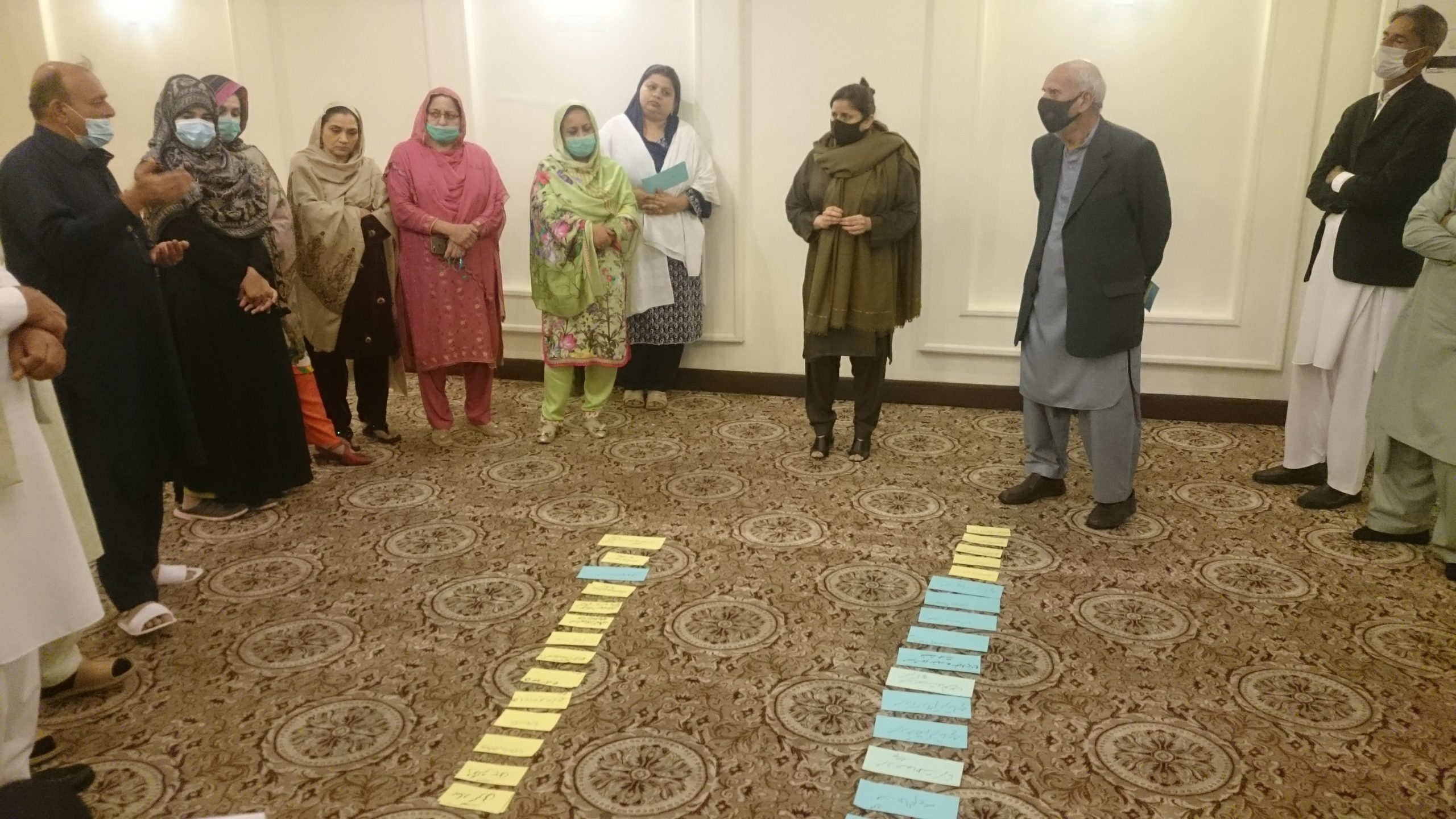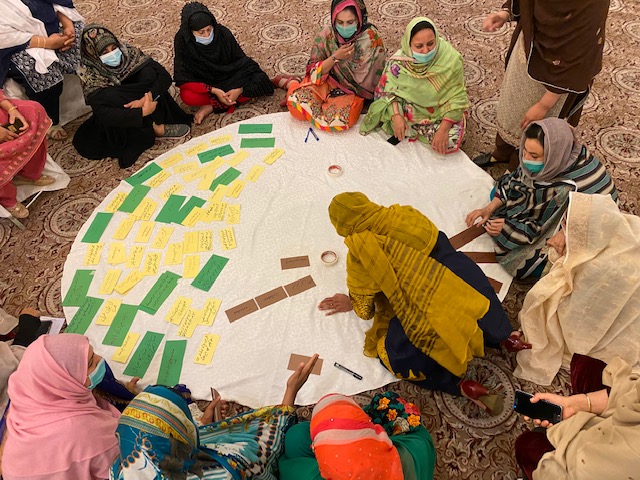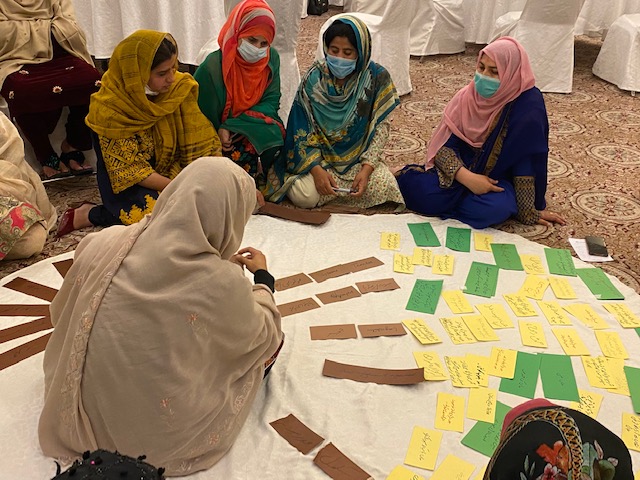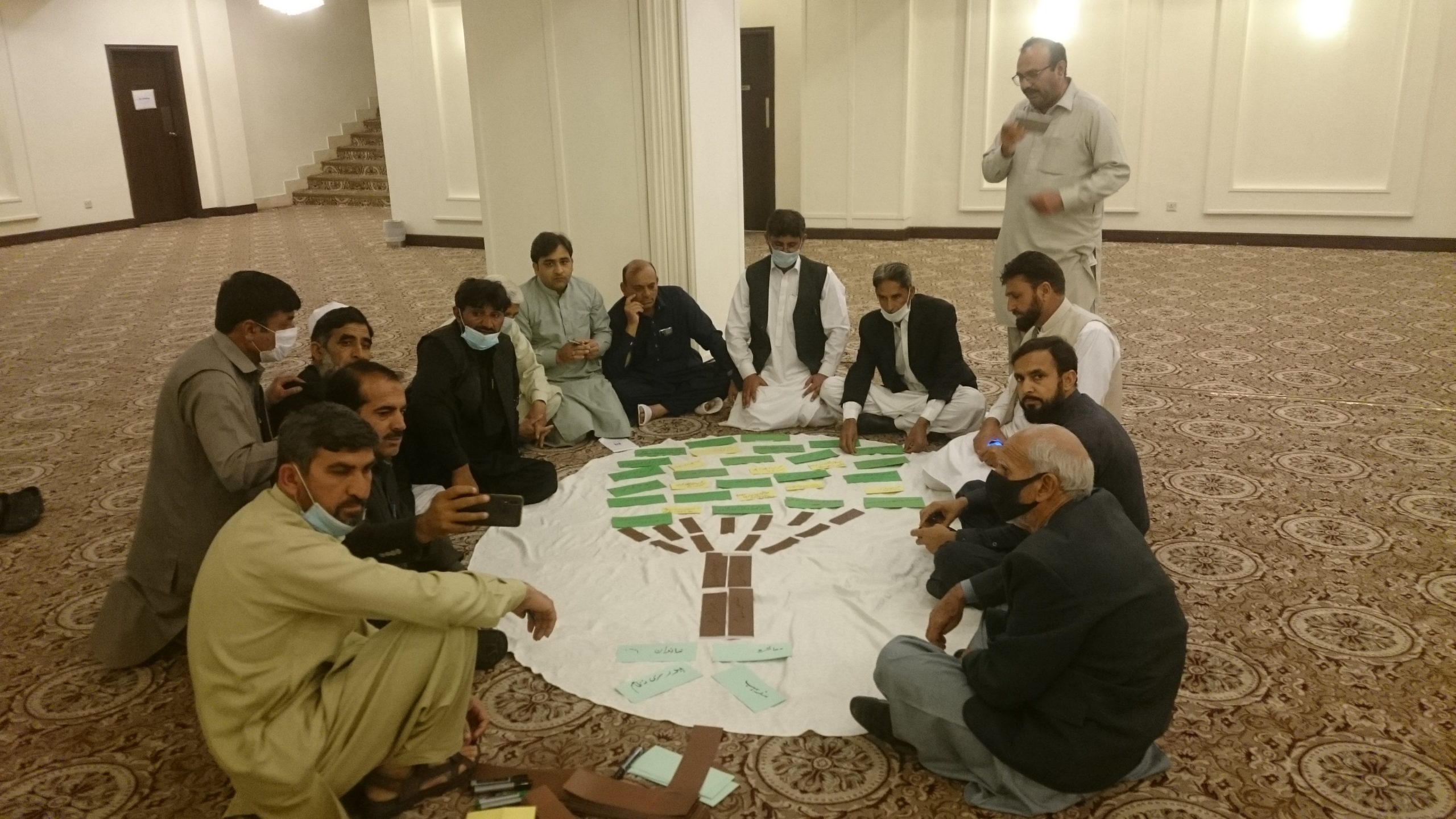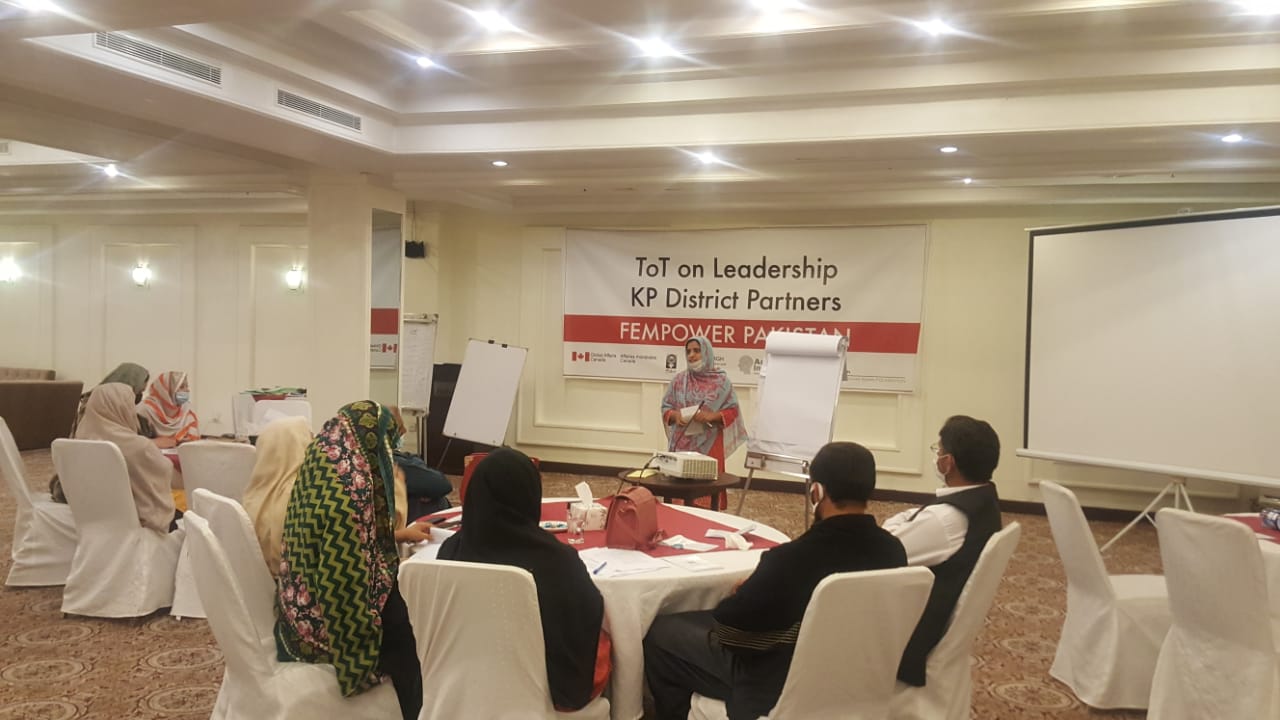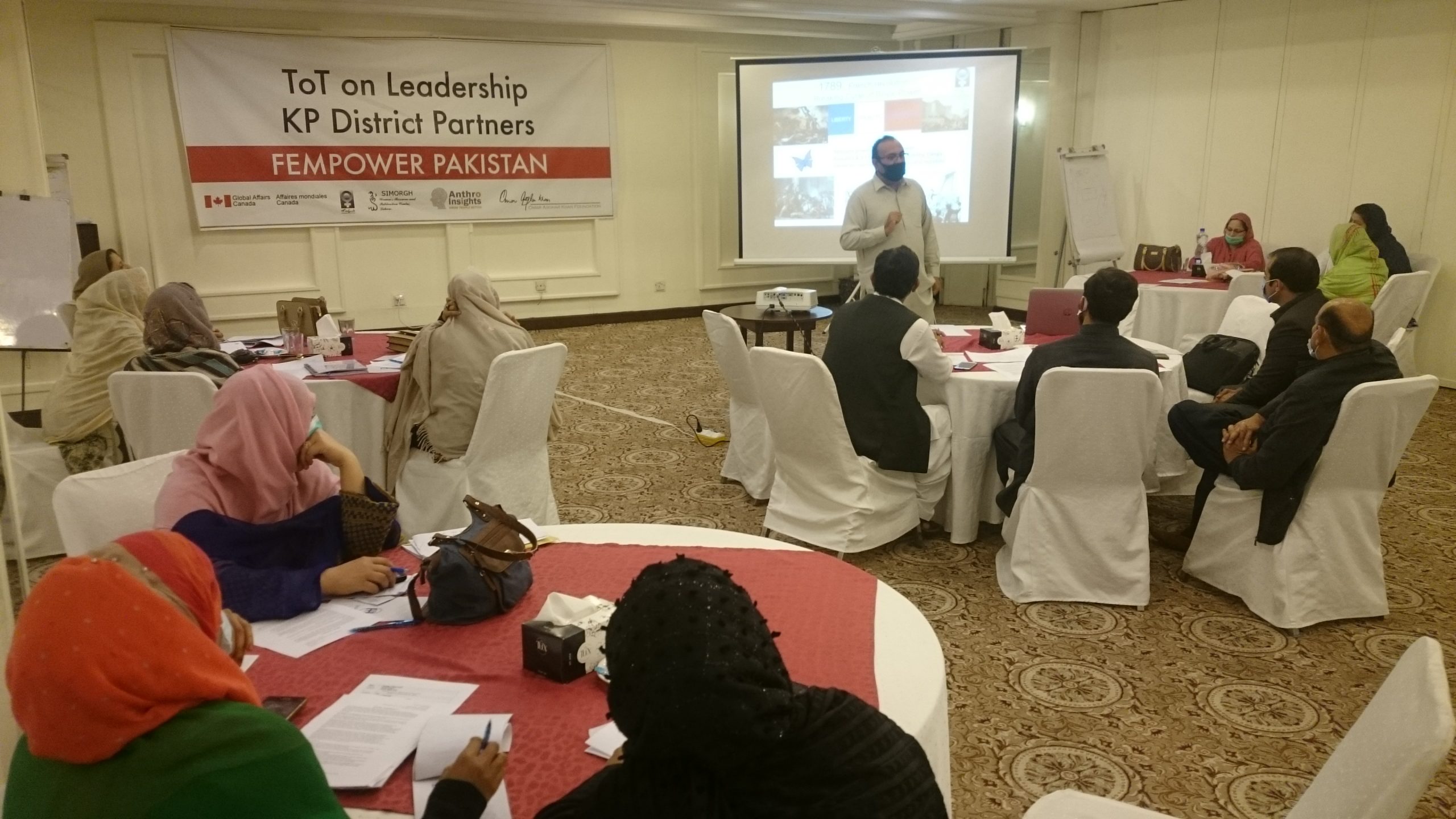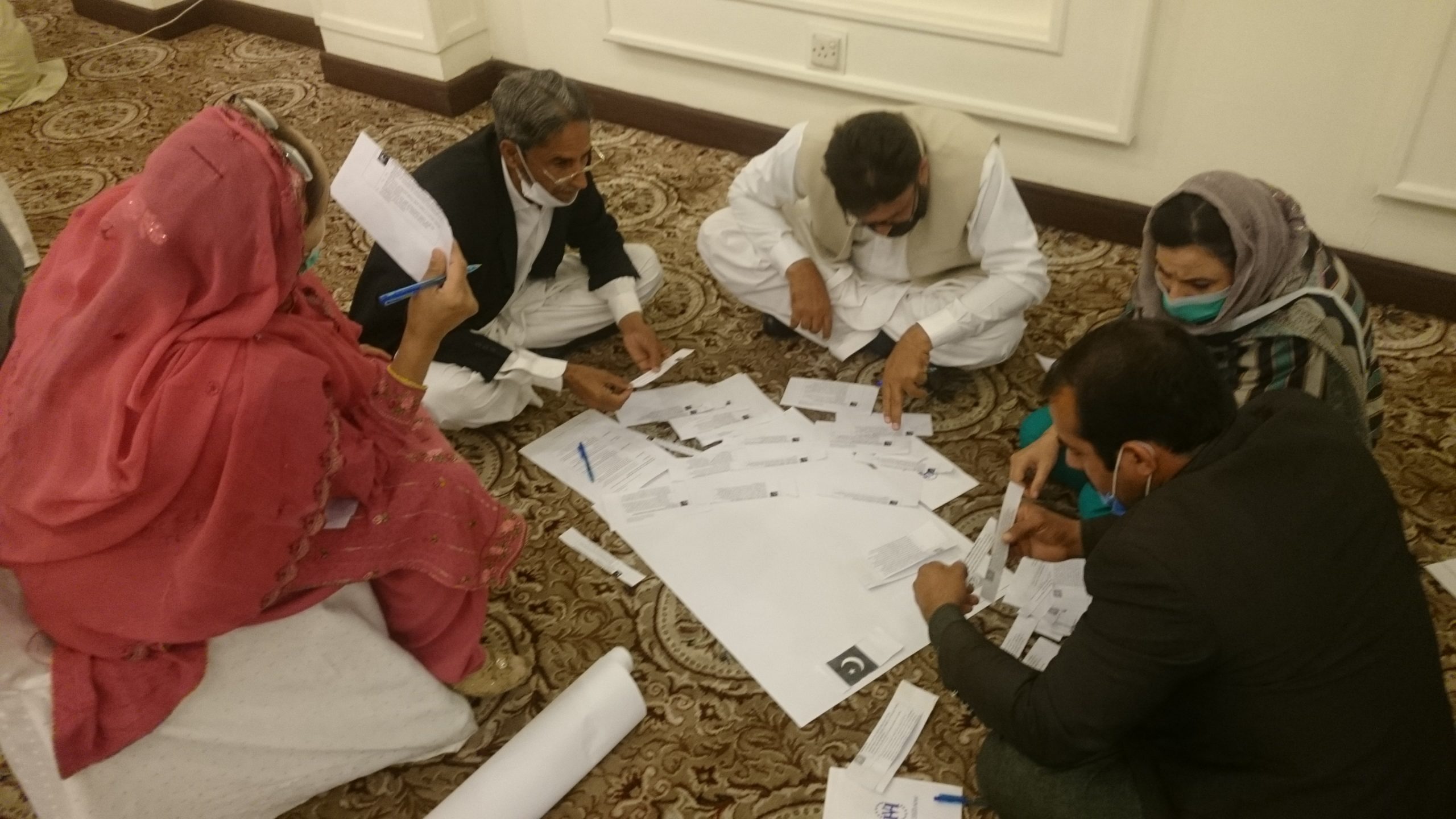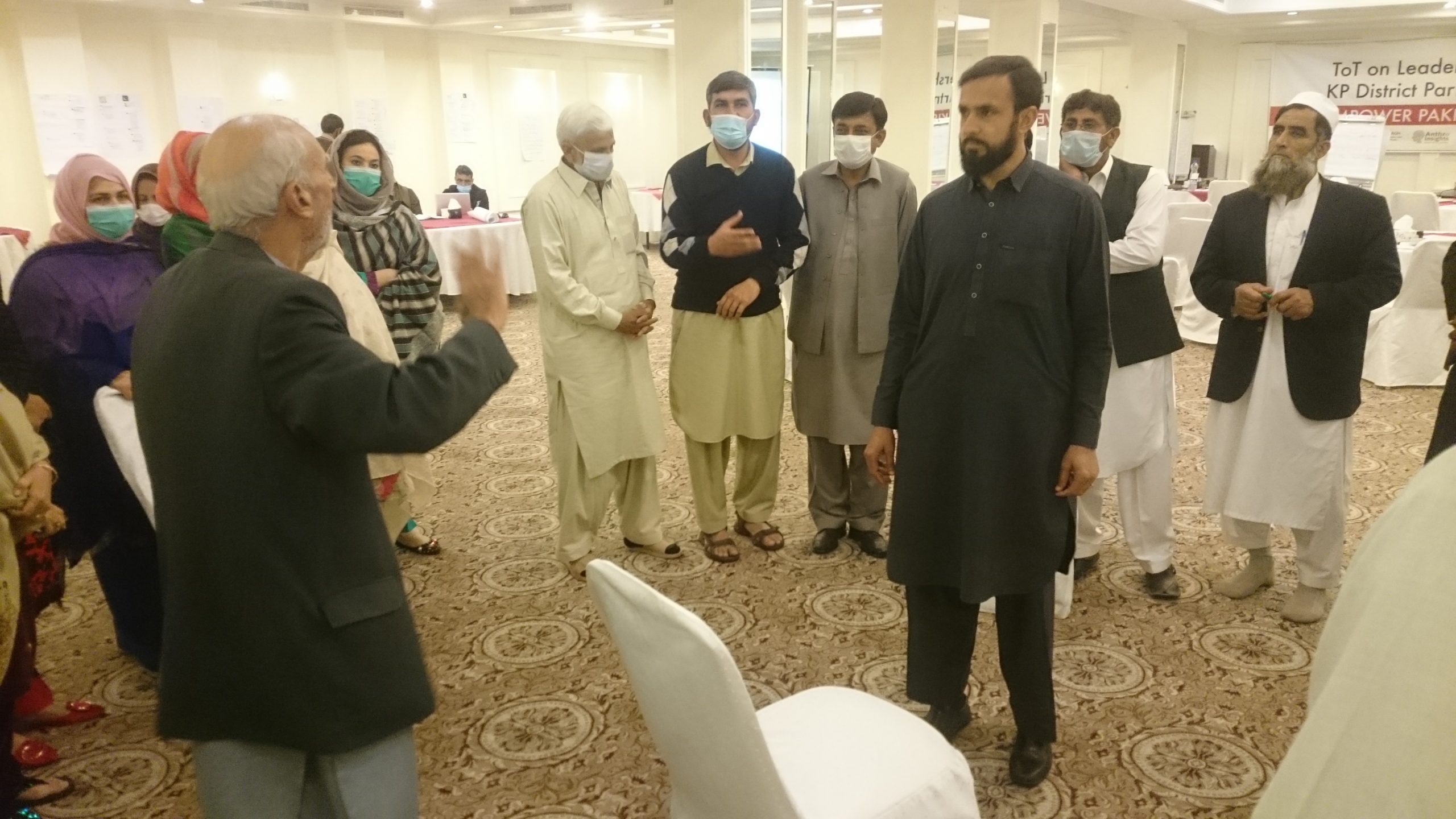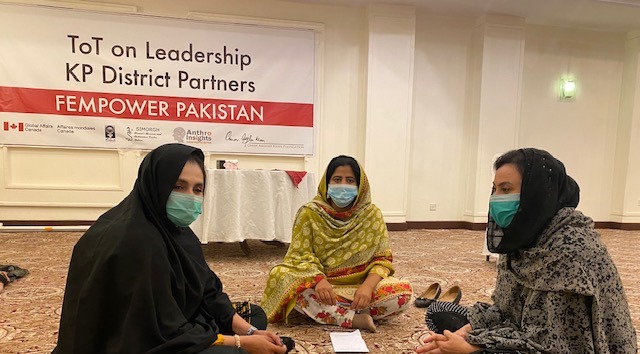Fempower Pakistan Training of Trainers – Leadership
13 female and 14 male activists from 12 CSOs KP’s five districts of Abbottabad, Haripur, Mardan, Nowshera and Peshawar attended a training on Leadership. They became more familiar with diversity and the imperative for inclusion. Human rights were discussed in detail, and participants were assisted in reviewing the Universal Declaration of Human Rights and assessing synergy with the Constitution of Pakistan. The training helped participants better understand gender roles, gender division of labour and the root causes of gender discrimination. “The training helped me realize, respect and value the untiring work my wife does at home, which is essential but unpaid,” Mr. Jamal Hussain Akbar from Peshawar. Participants learnt leadership, advocacy and communication skills to assist them in efforts to make a difference. “We are confident and excited to replicate the learning among local communities, to bring positive change,” Ms. Niazmeen Ali Asghar, a lawyer from Abbottabad.
A team of the Foundation’s trainers facilitated the training. They had attended a TOT run by Shirkat Gah in February 2021. They used the module provided by SG –as a reference guide for cascading replications with local communities. “Today I have become a feminist,” reflected Mr. Asjad Ali from Mardan at the conclusion of the training.
Under Fempower Pakistan, Shirkat Gah, Simorgh, Anthro Insights and the Foundation are working with women and male allies in some of the poorest areas of Pakistan to enhance their role and contributions in governance and democratic politics.

